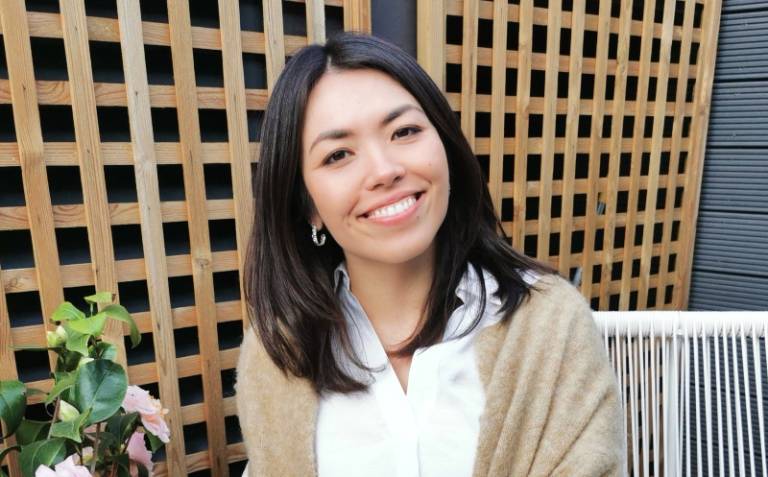Spotlight on...Emily Emmott
9 August 2023
This week we meet Emily Emmott, head of the Human Sciences degree programme and lecturer in Biological Anthropology at UCL Anthropology. Here, she chats to us about her journey, transitioning from a UCL undergraduate to her current role as the head of the same degree programme.

What is your role and what does it involve?
I am a Lecturer in Biological Anthropology at UCL Anthropology, and I am also head of Human Sciences which is an interdisciplinary degree programme we run together with Biosciences. Most of my time is spent on teaching, and I teach a module called Biosocial Approaches to Childrearing where we examine cross-cultural patterns in childrearing practices. I also do a lot of behind-the-scenes work that comes with overseeing a degree programme, and I am constantly brainstorming to see how we can improve student experiences. When I manage to find the time, I do research around social support and cooperative childrearing from an evolutionary perspective.
How long have you been at UCL and what was your previous role?
I first arrived at UCL as an undergraduate student to study BSc Human Sciences, and I never imagined I would be head of the same programme one day! As I was the first person in my immediate family to go to university, I had no idea what it would be like… but I loved it. I didn’t want to stop studying, and I eventually ended up doing a PhD in evolutionary anthropology. Since then, I’ve mainly worked in academia, but I’ve also worked in the third and public sectors as a researcher on children’s issues.
What working achievement or initiative are you most proud of?
I can’t say I am proud of anything in particular, but I feel very grateful that I have been surrounded by supportive friends and colleagues. Most of my achievements are built on the support of others. For example, I’ve been running a project on social support and infant feeding over the last 10-ish years, and the success from that is mainly down to working with fantastic collaborators. Saying that I should probably advertise my book here. It’s called Improving Breastfeeding Rates: Evolutionary Anthropological Insights for Public Health, and you can download the free pre-print version of it from UCL Discovery.
Tell us about a project you are working on now which is top of your to-do list
I’m now expanding my research on social support into adolescence. Adolescence is such an intriguing period of our lives, with major changes to our body, our cognition, as well as our social environment – but it’s so under-appreciated. People seem to focus on children, and then forget about teenagers. I’ve been running a project called Adolescent Sociality Across Cultures with colleagues in the UK and Japan. It’s been paused over the last few years due to the pandemic, but I’m slowly restarting the project.
What is your favourite album, film and novel?
I can’t pick a favourite book, but my go-to book genre is urban fantasy detective novels. I’m not sure what that says about my personality. My favourite film at the moment is Baby Shark’s Space Adventure, as it’s the only thing on TV which distracts my toddler enough to brush his teeth.
What advice would you give your younger self?
I’d tell myself to give badminton a go and read more Japanese books to keep up my language skills.
What would it surprise people to know about you?
I am not sure if it would be surprising, but I’ve been making pottery before the BBC made it cool.
What is your favourite place?
Epping Forest with the dog, especially when it’s a little muddy.
 Close
Close

